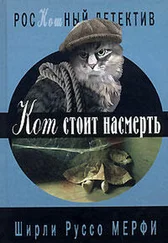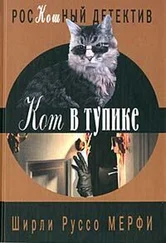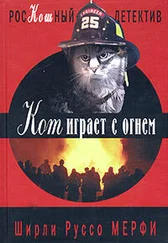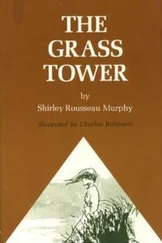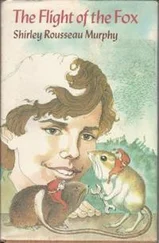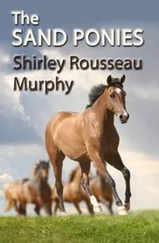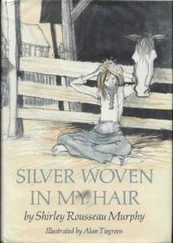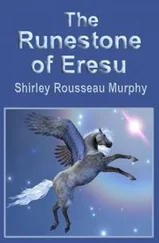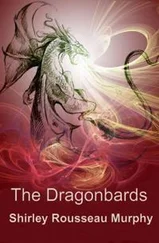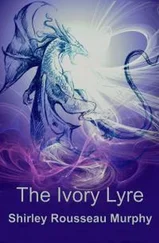Wolves, flicking from sun to shade, huge wolves sweeping down toward them, now, through the woods. The mare reared as they leaped toward her, spun away, pulling the rope in a sharp burn through Tayba’s hands; Ram jumped from the saddle as the pony veered under him. “Let her go, Mamen! Let her go!” The terrified pony leaped wildly past the approaching riders and disappeared into the trees—and the wolves surged around Ram, their eyes like fire. Tayba stood backed against a boulder, could not speak for the terror that held her. Huge shaggy wolves pressed against her, tall as her waist, rank-smelling; and their yellow eyes looked at her with a knowing that shook her.
She saw Ram put out his hand to the dark wolf leader, saw the wolf come to him, saw Ram thrust his hands deep into the wolf’s coat in greeting, then lay his face against the animal’s broad head as its tongue lolled in a fierce smile—the smile of a killer; saw the riders trying to approach, fighting their panicky horses.
Ram plunged his face against the warmth of the great wolf, smelled his wild smell, and felt whole suddenly, as if a part of himself had returned. Then he lifted his head to face EnDwyl and the Seer, pulling the big wolf close as he did so.
He sensed their fear with pleasure, saw the Seer’s hesitancy and how the dark wolf watched the riders with lips drawn back. Ram’s own lips twitched into a smile. “Fawdref,” he said, caressing the wolf’s ears. “You are Fawdref.” Fawdref turned his head to nudge Ram and to nose at the wolf bell. Ram held the bell, and together he and Fawdref made a power that lifted and amazed him, a power that held the Pellian Seer immobile, unable to touch them with his darkness, his thin face ashen, his pale eyes bulging with the effort—but then suddenly a new power surged within the Seer: Ram could feel it like a tide, something sweeping out of Pelli to support the Seer—the man beat his terrified horse so it plunged toward Ram, his sword raised. Ram cried out, the wolves leaped; they were wild with killing now, wild for blood. Behind him Tayba stood frozen, her sword drawn. The Seer’s horse went down with wolves tearing at it; the Seer screamed, and his scream seemed to echo beyond this place. Ram felt cold fear as EnDwyl flayed his horse through the pack, his face twisted with hate. As the animal reared over Tayba, EnDwyl shouted, “You told me he was dead! You . . .” Wolves leaped snarling to pull his horse down. He leaped clear, his sword flashing, slashed at wolves, forcing himself toward Tayba. She ducked his blade, her own blade blazing out And the pack was on the horses and tearing at the flailing Seer. The smell of blood sickened Ram. EnDwyl swung around to loom over him then. Ram felt a sharp blow, went dizzy, saw Tayba’s sword plunge into EnDwyl; he clung to consciousness, saw EnDwyl lash out—then saw EnDwyl poised over Tayba with the point of his sword at her throat.
The wolves, crouched to leap, held motionless, waiting for Ram to bid them.
EnDwyl looked coldly at Ram. “If I die, your mother will die.” Blood oozed from his side. “If the wolves touch me, she dies.” His pale hair was ribboned with sweat. He shivered. Ram tried to get up, readied to touch Fawdref s shaggy neck, was so dizzy that Fawdref blurred. He gripped the bell and spoke quietly, and the great wolf growled deep in his throat, did not take his eyes from EnDwyl.
“She will die, boy.”
Ram saw the fear in Tayba’s eyes. He saw her swallow, saw the blood soaking her tunic. He looked at the fear in EnDwyl that was different from Tayba’s fear, at the evil in EnDwyl. He touched Fawdref’s shoulder and felt the massive bone, felt Fawdref’s impatience, felt the tenseness of the pack of wolves—then felt Fawdref’s sharp dismay as he bid the animals draw back.
“Let her live,” he said to EnDwyl, “but go quickly. I can’t hold them long. The Seer is dead and your horses are dead, and they want you now.”
EnDwyl stared at Ram with hatred, his sword steady against Tayba’s throat. “You may be my son, but I waste no love on you. If you send the wolves for me after she is freed, you will die. The Seer of Pelli knows you have killed his apprentice. If I die too, he will send an army to kill you. An army no wolf could stand against.”
Ram smiled scoffingly. But he knew with dark certainty that what EnDwyl said was true. He crouched there, dizzy, and could feel a fury rise to him out of Pelli colder and more brutal than anything he had ever encountered. “Go in safety,” he said, swallowing. There was a bitter taste in his throat. The ground spun, he saw blood. He must send the wolves away. He saw EnDwyl go, knew that he caught the exhausted pony up there in the woods. He bid the wolves away then, as the earth spun under him. . . .
When EnDwyl had gone, the dark wolf stood staring after him with cold eyes, then bent to lick Ram’s face. Finally he turned and left Ram, his pack slipping up the plain beside him as silent as the cloud shadows they melted into, silent as the black boulders that shielded them from the town. Fawdref looked back once in a wordless promise that touched Ram even as Ram’s mind swirled in blackness.
*
The four old women were walking slowly downriver filling reed baskets with dolba leaf and evrole and lemon-tongue. They talked incessantly; or, three of them did, gathering exceedingly slowly, gossiping about nothing until Dlos, who led them, thought she would go mad. You couldn’t hear your own thoughts with those three prattling. She drew ahead, finding clumps of herbs the others might miss and marking them with rags tied to bushes. She was quite alone when she saw the two bodies, one bleeding, saw the gutted horses beside the boulder.
She saw the red roots of the little boy’s hair in one quick glance and knew that if the child were alive now, he might not be alive for long with that hair. Quickly she turned back, distracting the three slow cronies, got them turned aside to a bed of cherba they had missed. “I will search for perrisax for soap,” she said shortly. “Return here when your baskets are full. Be sure you pick all the cherba—but leave the roots! Don’t pull up the roots!”
She watched the women amble away, then hurried up the path and knelt by the little child. He was so cold. There was an ugly bruise on his forehead, going purple, swollen and bloodied under the skin. She covered him with her shawl, pulled off her woolen underskirt, and dipped it into the cold river to make a compress. She chafed his hands, trying to bring the blood up, to stir him. He must be seven or eight. A sturdy child. The red hair showed plainly where the roots had grown out beneath the dye. She pulled the compress on his forehead up to cover his hair and bound it.
At last she turned to the girl, a dark, stirring beauty of a girl, the kind that would light men’s souls—or goad them to hate and killing. Dlos examined the ugly wound in her side and washed and dressed it with dolba leaf hastily ground between stones. She dug into the pack on one of the dead horses, found clean cloth, and made a bandage.
The cloth in the pack was man’s clothing, this was a man’s pack. She examined the other pack, thick with blood and half-hidden under the dead, twisted animal and saw that it too had belonged to a man. No woman’s clothes or child’s things here. She found dye in that pack though, dye made from sweetburrow paste, a small stone crock of it She glanced again at the child. There was no doubt the child was a Seer. Had this rider, then, tended the Seer child, kept his hair dyed, seen to him? And where was that rider? She removed the boy’s bandage, opened the crock, applied the dye quickly until the roots no longer showed, then dropped the crock into her tunic pocket where it would not be seen. She wiped the dye from his forehead, being careful of the swelling bruise. Now his hair seemed as dark as the girl’s. Was this young woman his sister? His mother? Where were the men whose packs and horses these were? Surely there had been two men. What had happened in this meadow? Dlos rose and began to search.
Читать дальше
![Ширли Мерфи The Shattered Stone [calibre] обложка книги](/books/436059/shirli-merfi-the-shattered-stone-calibre-cover.webp)
